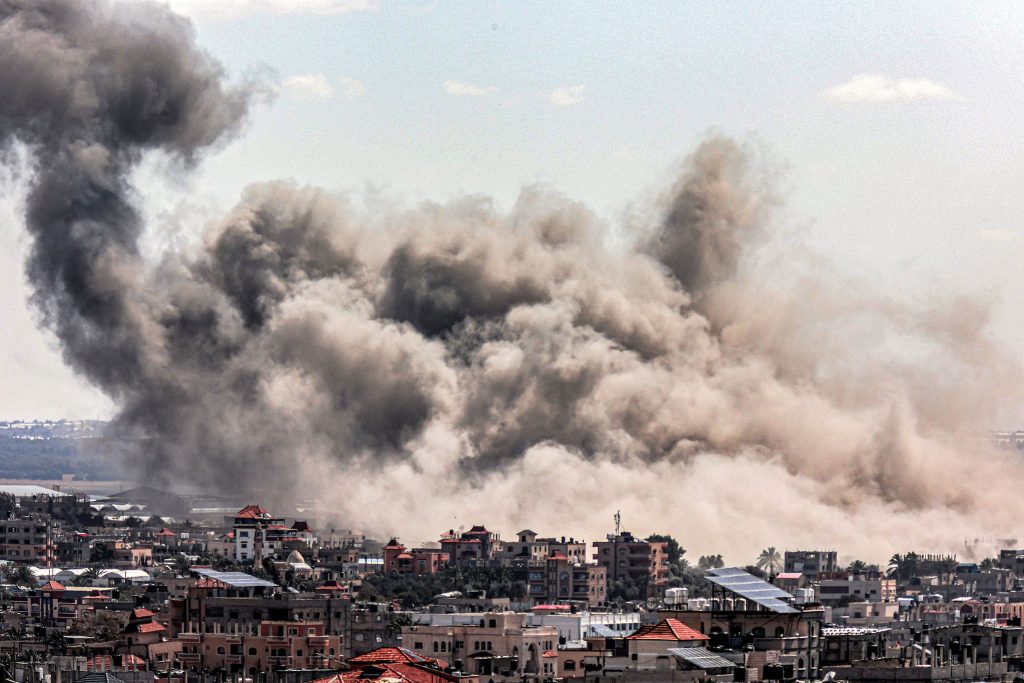By Alex Marquardt and Jeremy Diamond, CNN
(CNN) — Talks over a hostage deal and a ceasefire in Gaza between Israel and Hamas have reached another stalemate but are not over, according to three people familiar with the negotiations.
A diplomat described the talks as “stuck but ongoing,” saying that there continues to be “proposals going back and forth.” A second source confirmed the parties are still engaged but said the negotiations are in a “pause.”
There was no breakthrough after CIA Director Bill Burns traveled to Doha late last week to meet with Israeli, Egyptian and Qatari counterparts. Burns put forward a proposal that was accepted by Israel and sent back to Hamas, the second person and an Israeli official told CNN.
On Tuesday morning, Israel was informed that proposal was rejected by Hamas, the Israeli official said, and Israel decided to pull back the team of negotiators that had remained in Doha after Burns and Israel’s Mossad chief, David Barnea, had left Qatar.
“The negotiations are not only centric around the prisoner exchange deal,” Hamas senior official Basem Naeim told CNN on Monday. “Israel has not agreed to any of (Hamas) requests related to a complete ceasefire, the withdrawal of all forces from the Gaza Strip, even in stages, and the return of all displaced people to their homes.”
In the latest talks, Israel had agreed to release around 700 Palestinian prisoners – including many with life sentences – in exchange for 40 Israeli hostages held in Gaza, the Israeli official and the source familiar with the discussions said. Those releases would take place during the first phase of a ceasefire, which would be expected to last around six weeks.
But other major discussion points – for just the first phase – are still being fiercely debated: the ability for Gazans in the south to return home to the north, a surge of humanitarian aid for Gaza and the locations of Israeli troops.
Hamas has regularly taken a more maximalist approach to what is expected to be a three-phase deal: demanding eventual discussions on an end to the war and the full withdrawal of IDF troops from Gaza. Israel has refused to engage on either point, insisting on the need to continue efforts to dismantle Hamas.
The Israeli official said that Hamas didn’t counter their latest proposal that around 2,000 Palestinians be allowed to go back to the north per day, instead saying all the displaced Gazans should be allowed to return. Hamas again argued all IDF troops should leave Gaza, including from the new checkpoint road Israel has built that cuts across the middle of the enclave.
The National Security Council declined a request for comment Wednesday.
American officials have said this week that progress was made during the weekend talks in Doha. The process is complex and slow, one US official argued, in part because the Hamas negotiators need to get responses from the head of the group in Gaza, Yahya Sinwar, who is believed to be somewhere in the vast underground tunnel system.
On Tuesday, State Department Spokesman Matthew Miller criticized the argument by Israeli Prime Minister Benjamin Netanyahu’s office that Hamas rejected the American ceasefire proposal in light of the United Nations Security Council’s passage of a resolution calling for an immediate ceasefire, which the US did not veto.
“That statement is inaccurate in almost every respect, and it is unfair to the hostages and their families,” Miller said.
The inability to achieve a ceasefire could accelerate Israel’s plans to launch a largescale ground offensive into the southern Gaza city of Rafah. The US has repeatedly warned Israel against an operation without a coherent plan for the safety of the 1.4 million Palestinians sheltering there, which the Biden administration says it has not heard.
Israel’s defense minister, Yoav Gallant, visited Washington this week for a whirlwind series of meetings with top Biden national security officials, including an unannounced meeting with the CIA director on Tuesday night.
The senior US officials and Gallant did not reach any agreements on how Israel will move forward with an operation in Rafah in southern Gaza, US and Israeli officials told CNN.
Gallant was told that Israel needs to find an “alternative” option to a major assault of Rafah. Israeli officials said Gallant was open to the US’ recommendations about how to proceed with an attack on Hamas in Rafah, but ultimately Israeli officials said they will execute the plan they think is necessary to eliminate the remaining five Hamas battalions in the area.
CNN’s Natasha Bertrand contributed to this report.
The-CNN-Wire
™ & © 2024 Cable News Network, Inc., a Warner Bros. Discovery Company. All rights reserved.






More Stories
More young people joining the BWU
Man dies following apparent hit-and-run
Weather forecast for Saturday, April 27, 2024